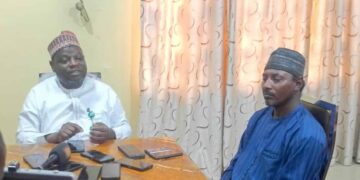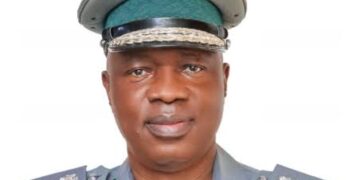The minister of Information and Culture, Alhaji Lai Mohammed, has urged Google and Meta, owners of social media platforms – Facebook, WhatsApp and Instagram – to
checkmate the spread of fake news and disinformation on their
platforms ahead of Nigeria’s 2023 general elections.
The Minister made the call in Abuja on Friday during a meeting with
representatives of Meta and Google, which owns YouTube and other
platforms.
“It is no longer news that the use of social media is now a critical
factor in national elections, and no nation, including Nigeria, is
immune. With a predominantly youthful population, Nigeria ranks among the countries with the highest number of users of various social media platforms, especially Whatsapp, Facebook, Twitter, Instagram, YouTube and TikTok.
”The use or misuse of these platforms is therefore of great concern to all stakeholders in the elections, and that’s why we have invited you here, so we can all jointly work to ensure the responsible use of these platforms so that they don’t become the platforms of choice for
purveyors of fake news and disinformation,” he said.
Alhaji Mohammed said that government has noticed how some unscrupulous people were using parody accounts, cloning reputable media platforms and the use of deep fakes to carry out their nefarious activities.
“For example, candidates’ campaign speeches are doctored to portray
them in a bad light, video clips and pictures of campaign rallies are
tampered with to make them look poorly attended; fake or unscientific opinion polls are concocted, while threats of violence in certain parts of the country are exaggerated – all of which are then circulated via social media to a wide audience, with the aim of making their target candidates look bad, influencing public perception or even suppressing votes in certain areas. In other words, there has been a gross abuse of social media platforms to purvey fake news and
disinformation ahead of the elections,” he said.
The Minister, therefore, enjoined the two tech giants to onboard
designated officials of the Ministry on their platforms so they can
flag posts that constitute fake news and disinformation, with a view
to having such flagged posts brought down.
He also urged them to work with the security agencies to bring down
posts capable of inciting violence; requested that election results
not originating from official sources should be flagged as unverified,
while asking the platform owners to make posts from official channels,
like the Ministry of Information and Culture, INEC, National Orientation Agency (NOA), etc, prominent on their platforms.
“These actions, if executed, will go a long way in checking the proliferation of fake news and disinformation on social media ahead, during, and after the elections,” he said.
The representative of Google at the meeting, Dawn Dimowo, who manages Government Affairs and Public Policy, pledged the readiness of the platform to work with other stakeholders to ensure the credibility of the elections.
She said Google had trained about 6,000 journalists in addition to engaging and expanding the scope of fact-checking platforms such as Dubawa to identify and flag fake news.
On her part, Meta’s Head of Anglophone West Africa, Adaora Ikenze, said the organization has set up an Election Protection Operating Centre, which has between 60 and 80 people who are working to ensure their platforms are not used to discredit the elections.
She said Meta had also instituted internal mechanisms, such as
WhatsApp Messages Sending Limits, in addition to making it possible
for people to report problematic contents to them directly.





